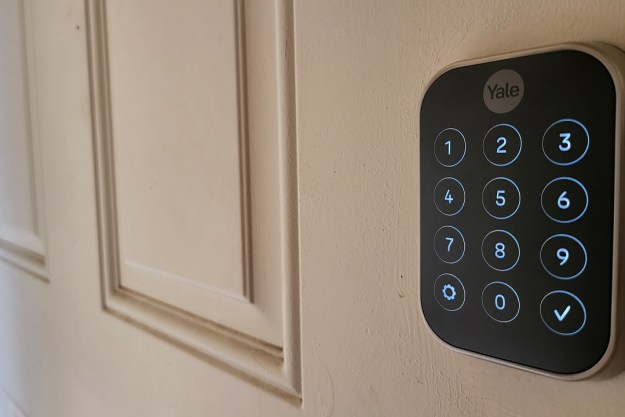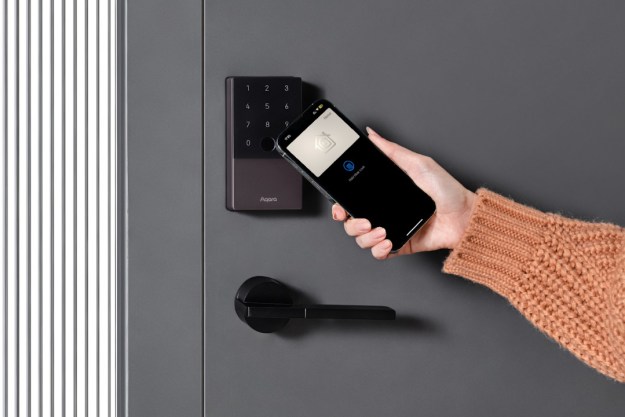
Kwikset is hoping to change that, and has unveiled its latest smart lock. The lock does away with the key and has one single form of input: a touchpad. You’ll never need to carry a key again!
While the lock has a touchpad, it also has a Z-Wave connection, so you could theoretically even unlock it simply by having your phone on you, if you so choose. Considering it can connect to a smart home hub, unlocking your door could also trigger other events, like the lights turning on, or music starting up.
Kwikset thinks that smart locks like this could be far safer than traditional locks, doing away with break-in methods like lock picking. Sure, if your phone unlocks your door someone could steal your phone and get into your house, but that was already the case with keys — have them stolen and the thief has free access.
Related: Never lose your belongings again with this handy GPS tracker key chain
There is one potential issue with the lock though: What happens in a power outage? Are you just locked out? Thankfully, no, you’re not. Kwikset’s lock relies on four AA batteries, and the company says this will get you through a full year. When they start to run out, an indicator will let you know to replace the batteries. You can also slap in a 9V battery as a backup, so if you’re paying enough attention, you should never really be locked out because of dead batteries.
There are a few other keyless locks out there: Yale, for example, which also has Z-Wave. Kwikset’s, however, has a much more modern design.
Despite keyless locks certainly seeming like wave of the future, it still feels like they’re not capable of completely replacing all our locks just yet. Kwikset’s new lock seems great; however, it will be interesting to see what comes next. Fingerprint-based locks, maybe? Or perhaps we’ll finally go full Star Trek and get locks with retinal scanners.
Updated on 04-12-2016 by Christian de Looper: Added info about Yale having Z-Wave.
Editors' Recommendations
- Yale’s newest smart lock is designed for renters
- Lockly is bringing Matter and facial recognition to your front door in 2024
- Are keyless smart locks safe?
- New Yale Assure Lock 2 models get fingerprint scanner, support for Apple Home keys
- This $4,000 smart door comes packing a Ring video doorbell and Yale smart lock


